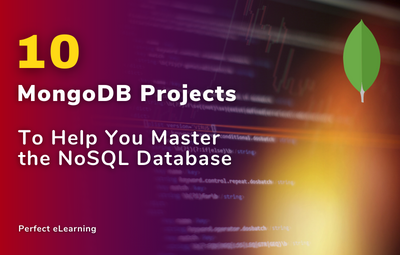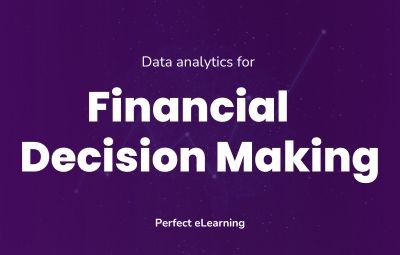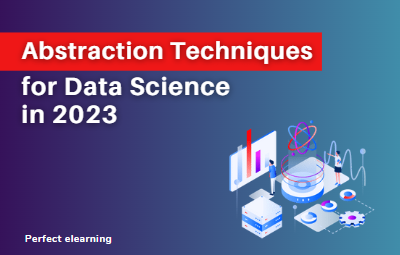

Enhance financial decision-making using data analytics. Learn strategies to leverage data for informed choices in the dynamic world of finance.
In the digital age, data is generated at an unprecedented rate. Businesses accumulate vast amounts of data through various sources, including transactions, customer interactions, and market trends. This data, when analyzed strategically, holds the potential to unlock insights that drive financial decisions.
1. Understanding Data Analytics in Finance
1.1 Defining Data Analytics
Data analytics refers to the process of examining large sets of data to uncover hidden patterns, correlations, and trends. In the realm of finance, data analytics involves scrutinizing financial data to extract meaningful insights that guide decision-making.
1.2 Importance of Data Analytics in Finance
Data analytics empowers financial professionals to move beyond gut feelings and make decisions grounded in evidence. By utilizing historical data, businesses can identify factors that influence financial outcomes and adjust strategies accordingly.
2. Types of Financial Data Analytics
2.1 Descriptive Analytics
Descriptive analytics involves analyzing past data to understand what has happened in a business. It provides a historical perspective on financial performance and forms the basis for more advanced analyses.
2.2 Diagnostic Analytics
Diagnostic analytics dives deeper into the "why" of financial outcomes. It helps businesses understand the reasons behind specific trends or events, aiding in the identification of root causes.
2.3 Predictive Analytics
Predictive analytics utilizes historical data to forecast future financial trends. By identifying patterns, predictive analytics enables businesses to anticipate potential outcomes and make proactive decisions.
2.4 Prescriptive Analytics
Prescriptive analytics takes predictive analysis a step further by providing recommendations for action. It suggests optimal strategies based on data insights, helping businesses make well-informed choices.
3. Collecting and Processing Financial Data
Efficient data collection and processing are essential for accurate analysis. Businesses must gather data from various sources, such as transaction records, market data, and customer feedback. Once collected, the data needs to be cleaned and organized for meaningful analysis.
4. Benefits of Data Analytics in Financial Decision Making
4.1 Enhanced Accuracy and Reliability
Data analytics minimizes the reliance on assumptions and guesswork. It offers a data-driven approach that enhances the accuracy and reliability of financial predictions.
4.2 Improved Risk Management
By analyzing historical data, businesses can identify potential risks and develop strategies to mitigate them. This proactive approach to risk management can prevent financial losses.
4.3 Identifying Market Trends
Data analytics enables businesses to spot market trends and consumer behaviors. This insight is invaluable for adapting strategies and staying ahead in competitive markets.
4.4 Efficient Resource Allocation
Optimal allocation of resources is crucial for financial success. Data analytics helps businesses allocate budgets, staff, and other resources efficiently to maximize returns.
5. Challenges in Implementing Data Analytics
5.1 Data Security and Privacy Concerns
Handling financial data requires stringent security measures to protect sensitive information. Businesses must ensure compliance with data protection regulations.
5.2 Skill Gap and Training
Implementing data analytics requires a skilled workforce. Bridging the skill gap through training and development is essential for leveraging analytics effectively.
5.3 Integration with Existing Systems
Integrating data analytics into existing financial systems can be complex. Businesses need seamless integration to ensure accurate and timely analysis.
6.Best Practices for Effective Data Utilization
6.1 Setting Clear Objectives
Businesses must define clear objectives before embarking on data analysis. Having specific goals ensures that the insights gained are relevant to decision-making.
6.2 Choosing the Right Tools
Selecting the appropriate data analytics tools is crucial. Different tools offer varying capabilities, and businesses should choose ones that align with their requirements.
6.3 Ensuring Data Quality
The accuracy of analysis depends on the quality of the data. Regular data cleansing and validation are necessary to maintain data integrity.
6.4 Regular Analysis and Adaptation
Data analytics is an ongoing process. Regular analysis allows businesses to adapt to changing circumstances and make agile decisions.
7. Real-world Applications of Data Analytics in Finance
Data analytics finds application in various financial areas, including fraud detection, credit risk assessment, and investment management. These applications streamline processes and enhance decision-making accuracy.
8. Case Study: Leveraging Data Analytics for Investment Decisions
A hypothetical case study highlights how a financial firm used data analytics to assess investment opportunities. By analyzing historical market data and economic indicators, the firm made well-informed investment choices.
9. The Future of Data Analytics in Finance
As technology advances, data analytics will continue to evolve. Machine learning and AI will play a larger role in analyzing complex financial data, enabling businesses to gain deeper insights.
Conclusion
Data analytics has transformed the landscape of financial decision-making. By leveraging data-driven insights, businesses can make informed choices that drive growth and profitability. The integration of data analytics into finance is not only a trend but a necessity for thriving in the digital age.
FAQs (Frequently Asked Questions)
Q1. What is data analytics in finance?
A1: Data analytics in finance refers to the process of analyzing financial data to uncover patterns, trends, and insights that guide decision-making.
Q2. How does data analytics improve resource allocation?
A2: Data analytics helps businesses allocate resources efficiently by analyzing historical data and identifying areas that offer the highest returns.
Q3. What are the challenges of implementing data analytics?
A3: Challenges include data security concerns, skill gaps, and the integration of analytics into existing systems.
Q4. How can businesses ensure data quality for accurate analysis?
A4: Regular data cleansing and validation are essential to maintain data quality for accurate analysis.
Q5. What does the future hold for data analytics in finance?
A5: The future involves advanced technologies like machine learning and AI playing a larger role in analyzing complex financial data.
Perfect eLearning is a tech-enabled education platform that provides IT courses with 100% Internship and Placement support. Perfect eLearning provides both Online classes and Offline classes only in Faridabad.
It provides a wide range of courses in areas such as Artificial Intelligence, Cloud Computing, Data Science, Digital Marketing, Full Stack Web Development, Block Chain, Data Analytics, and Mobile Application Development. Perfect eLearning, with its cutting-edge technology and expert instructors from Adobe, Microsoft, PWC, Google, Amazon, Flipkart, Nestle and Info edge is the perfect place to start your IT education.
Perfect eLearning provides the training and support you need to succeed in today's fast-paced and constantly evolving tech industry, whether you're just starting out or looking to expand your skill set.
There's something here for everyone. Perfect eLearning provides the best online courses as well as complete internship and placement assistance.
Keep Learning, Keep Growing.
If you are confused and need Guidance over choosing the right programming language or right career in the tech industry, you can schedule a free counseling session with Perfect eLearning experts.


